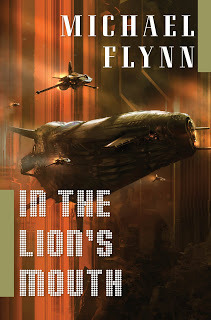Michael Flynn's Blog, page 50
August 1, 2011
Who said that?
Quote #1
“Logic” and rationalist thought (a certain degree of national Darwinism) should be the fundament of our societies. I support the propagation of collective rational thought but not necessarily on a personal level. Because, if a woman was purely rational, she would choose to not have babies at all, and instead live her life in a purely egotistical manner. We should strive to become a civilisation where the individual’s acquisition of wealth would no longer be the driving force in our lives.
Quote #2
As for the Church and science, it is essential that science takes an undisputed precedence over biblical teachings.
Anders Behring Breivik, "A European Declaration of Independence"
Quote #1: p. 1386
Quote #2: p. 1403
Extremophiles
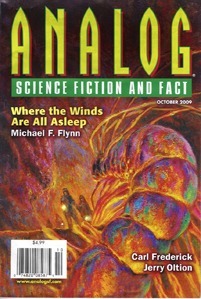 Hat tip to Pawyilee at the Analog Forum for making note of this for fans of my novella, "Where the Winds Are All Asleep."
Hat tip to Pawyilee at the Analog Forum for making note of this for fans of my novella, "Where the Winds Are All Asleep."Extremophiles
July 30, 2011
Whodathunkit
during the Age of Big Hair and dorky clothing, there lived a Frog Prince who dressed oft-times in plaid bell-bottom trousers and paisley shirts. And the strangest thing was that this did not distinguish him from his peers. He lived in a building that had not already been condemned and with him lived six others. They communally shared expenses, cooking and clean-up, and other tasks, and new members of the commune bought stock in the refrigerator and dishwasher when they joined and received their money back minus a discount when they left. It was a capitalist commune.
In those days, phones were still dialed, music was extracted from a groove vibrated onto vinyl disks, and an exciting new technology was in the wings: the eight track tape. A company called Texas Instruments had recently invented a device that could add, subtract, multiply, and divide - and even take square roots. But not many people had these expensive little beasts.
The lava lamp existed.
The Beatles were crossing Abbey Road on their way to Penny Lane. John was barefoot. Did that mean he was dead? Sergeant Pepper taught the band to play,
Grass was not always the sort mowed in the yard.
The dining room table had atop it a huge flat featureless door originally hanging in a hospital, but which had made its way into the building by means unknown. By laying this door flat on the table, the circumference of the table was augmented so that all the communards could sit around it and... commune. The dining room walls had been painted by the communards of the previous year, and it is best not to enquire too closely into the resultant color scheme and layout.
Two of the communards were of the female persuasion, and bore the names Sally and D. Or perhaps it was Dee, though her full name was D'Arlyn, which made D the true nickletter and "darlin'" the forbidden sobriquet. These two women worked in an insurance office downtown and had a friend whom they brought to dinner one day. She sat at the vast table directly across from the Frog Prince, who noted that she possessed the Prettiest Smile on the Face of the Planet. This vision of loveliness was
There was a wee difficulty in that she was then currently dating a person known only as Old Rich Elliott. Nor had the Frog Prince been dateless hitherto. But such difficulties are trifles to those ensnared by cupid and matters proceeded.
The two of them made the rounds of what was then called The Milwaukee Circuit. This was a series of night clubs that were visited in sequence, so that the crowd always moved with you from place to place. One remembers The Stone Toad with its eponymous statue, Uncle Dirty, Crazy Horse. (Someone tried to open a bar called Uncle Crazy's Dirty Horse, but that was a horse of another color.) And of course, the bar called Someplace Else. This was the bar that immediately came to mind when a couple in the midst of the aforesaid Movable Feast said to one another, "let's go someplace else" and of course everyone wound up there.
Conversation revealed that The Frog Prince and the Incomparable Marge shared at least two other friends in common, and so they decided that it had really been inevitable that they would one day meet. It was, as it were, Fate.
There was also in those days, a masterpiece of fashion known as a bright yellow pants-suit, but of this one may speak only at one's peril. .
And time ran down. The Frog Prince wrote a master's thesis in which he proved two new theorems in general topology and secured a graduate assistantship in far off Colorado. The semester drew to a close. And one day the Incomparable Marge said, "Where is this thing going?"There was only one place it could go.
And so the Frog Prince and the Incomparable Marge married, and her kiss transformed the Frog, well, not into a handsome Prince exactly; but that it was a transformation few could doubt. For better or worse, in sickness and in health.
The commune at 1227 N. 23rd St. cruised along for another year with new faces and old. After that the building was abandoned and fell into ruins that the Frog Prince would one day visit. And later still the building would be leveled leaving nothing but an empty lot. The communards drifted off to parts unknown. The Frog Prince went from topology to applied statistics and eventually turned his hand to writing whimsical tales of scientifical fiction. The Incomparable Marge left insurance for banking, where she became the Indispensable Marge. Nothing stayed the same.
Except one thing:
40 Years and Counting!

July 28, 2011
The wonderful world of skiffy
Could not get on here for two days....
In the Lion's Mouth Cover Art!
Processional
Sing, O harper, the anger of Donovan buigh,
That graced us all with boundless grief,
And left brave men a prey to dogs and kites
As we foresaw upon that fateful day
When Donovan buigh and Those of Name
First fell out.
#
When his wrath at first arose ’twas I he fixed it on.
Oh, yes. ’Twas I who hauled him from his happiness
Off those same Jehovan streets where once he walked,
And had he not his eye upon more distant joys affixed,
We’d twain lie dead in those same gutters, gutted
By each other’s skills. But he foreknew, and so forbore to fight
And did submit him to my plea. But know this now, o harper.
It was to thee that he was bound when I untimely snatched him up.
Attend my tale and learn
Why once-great cities burn.
#
July 25, 2011
Notes from the Untergang
But since it posted on The TOFSpot with no problem, I will simply refer you thither. Besides, it gives me a chance to use "thither" in a sentence.
July 22, 2011
The Great Divide
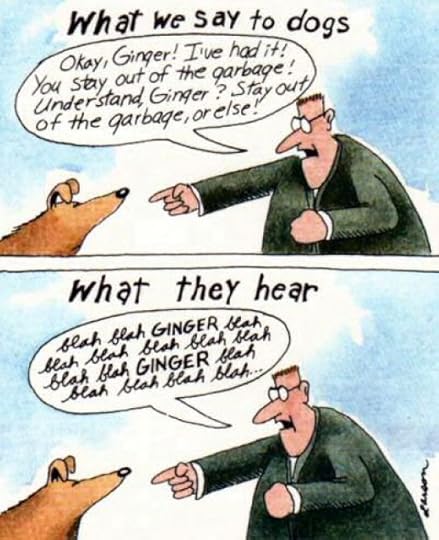
When Helen Keller Became Human
One of the confusions between human beings and other higher animals is that between training animals to recognize and respond to signs and the human ability to conceive of symbols. The former can be accomplished by sensation and perception (including memory and imagination). But there is a world of difference between the imagination and the intellect. The confusion stems from the fact that human beings are also animals, and so all those things that are true of animals are true of human beings.
And we can respond to signs. If someone cries, "Watch Out!!!" we tend to duck, not open a debate about what it is that we should watch out for. Walker Percy, in The Message in the Bottle, mentions that when island fishermen are in their boats, and one cries out, "Mackerel here!", the other boats paddle in that direction. Reaction to a stimulus, just like any "animal in an environment." If that was all there is, there would be nothing further to say. In particular, we would be unable to say anything further.
Helen Keller was able to tell us what it was like to be an animal in an environment:
Have you ever been at sea in a dense fog, when it seemed as if a tangible white darkness shut you in, and the great ship, tense and anxious, groped her way toward the shore with plummet and sounding-line, and you waited with beating heart for something to happen? I was like that ship before my education began, only I was without compass or sounding-line, and had no way of knowing how near the harbour I was. "Light! give me light!" was the wordless cry of my soul, and the light of love shone on me in that very hour.
When Helen Keller Became Human
Unlike most of us, Ms. Keller was able to tell us of the day she first became fully human, became a symbol-monger rather than a sign-responder.
She [Miss Sullivan] brought me my hat, and I knew I was going out into the warm sunshine. This thought, if a wordless sensation might be called a thought, made me hop and skip with pleasure. [Sign-responder.]
We walked down the path to the well-house, attracted by the fragrance of the honeysuckle with which it was covered. Some one was drawing water and my teacher placed my hand under the spout. As the cool stream gushed over one hand she spelled into the other the word water, first slowly, then rapidly. I stood still, my whole attention fixed upon the motions of her fingers. Suddenly I felt a misty consciousness as of something forgotten--a thrill of returning thought; and somehow the mystery of language was revealed to me. I knew then that "w-a-t-e-r" meant the wonderful cool something that was flowing over my hand. That living word awakened my soul, gave it light, hope, joy, set it free! There were barriers still, it is true, but barriers that could in time be swept away.
I left the well-house eager to learn. Everything had a name, and each name gave birth to a new thought. As we returned to the house every object which I touched seemed to quiver with sight that had come to me. On entering the door I remembered the doll I had broken [earlier that day, in a tantrum]. I felt my way to the hearth and picked up the pieces. I tried vainly to put them together. Then my eyes filled with tears; for I realized what I had done, and for the first time I felt repentance and sorrow.
I learned a great many new words that day. I do not remember what they all were; but I do know that mother, father, sister, teacher were among them--words that were to make the world blossom for me, "like Aaron's rod, with flowers." It would have been difficult to find a happier child that I was as I lay in my crib at the close of the eventful day and lived over the joys it had brought me, and for the first time longed for a new day to come.
Like her remotest ancestors, she had eaten the fruit of the tree of the knowledge of good and evil, and like them she felt repentance and sorrow over her literally thoughtless acts of disobedience. She had been moved from potentially rational to actually rational. She had received the "word" and the word had set her free.
A Symbol Fetched by a DogIn the same book, Percy illustrates the difference between a sign and a symbol with the following parable.
But what is a symbol? A symbol does not direct our attention to something else, as a sign does. It does not direct at all. It "means" something else. It somehow comes to contain within itself the thing it means. The word ball is a sign to my dog and a symbol to you. If I say ball to my dog, he will respond like a good Pavlovian organism and look under the sofa and fetch it. But if I say ball to you, you will simply look at me and, if you are patient, finally say, "What about it?" The dog responds to the word by looking for the thing: you conceive the ball through the word ball. (Walker Percy, The Message in the Bottle, p.153)
IOW, he says, you expect a meaningful statement about balls or a ball - a coupling of the word and the concept such as Helen Keller experienced one fine spring day in - not simply the sound "ball." Concepts are the product of the intellect, just as images [percepts] are the product of the imagination. Rover knows this little blue bouncy ball, but he does not know ball, as such. At best, being color-blind and mostly scent-driven, he might fetch the little red bouncy ball instead.
Chewing the Fat Over the Campfire
A long time ago in a land far far away, a band of creatures who are not quite human are huddled around a campfire. They are chewing the fat -- literally. The bison hunt went well and they are chowing down on precious carbs. One of them -- let's call him Adam just for slaps and giggles -- is remembering the bison hunt, recalling the excitement of it, the moment of discovery. He wants to share this remembered pleasure with his compadres. He experiences a Helen Keller moment and utters the hunting cry that they use when a bison is spotted. Let's say the cry is "BISON! HERE!"
One of his fellows -- call him Bubba -- is startled and turns about, looking for the bison, perhaps hefting his spear. But the others, knowing there are no bison nearby, listen to what Adam says and then one-by-one they begin to nod. They are remembering the bison-then through the cry for bison-now. Something has come over Adam that is much like what came over Helen and his friends are catching some of it. There is no Annie Sullivan to teach them the words for things. Most of those words do not yet even exist and must be coined. What took Helen one fine spring day will take Adam and his band many years -- or even generations. But we can only imagine the same sort of excitement that Helen experienced: that white fog of animal sign-response had parted and the way was now clear. Now the bison is in his mind as well as on the plain. He can think about not only the bison being chased in the here and now, but also about the spirit of bisons-past and the spirit of bisons-yet-to-come; and one day his progeny will draw pictures of bisons on the walls of caves and imagine things they have not yet seen.
Alas, poor Koko! All she knew was that if she pressed these keys after seeing those images she would get a treat. She did not even know that the treat-giver was so anxiously reading into the sequence of keys pressed intimations of rational thought, interpreting them as once the oracles of the Delphic priestess were interpreted, transforming gibberish into meaningful statements about balls.
Annie Sullivan's Perspective
Now, Helen Keller was always human because she always had the capacity for language, even if the capacity was undeveloped. A human is two-legged, even if some have lost a leg to accident or genetics. So the gulf is a bit wider than we suppose. She had been asking the signs for things before the breakthrough, but had not connected the sign with the thing with the concept, the three-legged relationship that Percy called "the Delta Factor."
In her letters, Ms. Sullivan recounts from the outside the same episode with the water pump:
In a previous letter I think I wrote you that "mug" and "milk" had given Helen more trouble than all the rest. She confused the nouns with the verb "drink." She didn't know the word for "drink," but went through the pantomime of drinking whenever she spelled "mug" or "milk." This morning, while she was washing, she wanted to know the name for "water." When she wants to know the name of anything, she points to it and pats my hand. I spelled "w-a-t-e-r" and thought no more about it until after breakfast. Then it occurred to me that with the help of this new word I might succeed in straightening out the "mug-milk" difficulty. We went out to the pump-house, and I made Helen hold her mug under the spout while I pumped. As the cold water gushed forth, filling the mug, I spelled "w-a-t-e-r" in Helen's free hand. The word coming so close upon the sensation of cold water rushing over her hand seemed to startle her. She dropped the mug and stood as one transfixed. A new light came into her face. She spelled "water" several times. Then she dropped on the ground and asked for its name and pointed to the pump and the trellis, and suddenly turning round she asked for my name. I spelled "Teacher." Just then the nurse brought Helen's little sister into the pump-house and Helen spelled "baby" and pointed to the nurse. All the way back to the house she was highly excited, and learned the name of every object she touched, so that in a few hours she had added thirty new words to her vocabulary. Here are some of them: Door, open , shut, give, go, come, and a great many more.
P. S.--I didn't finish my letter it time to get it posted last night; so I shall add a line. Helen got up this morning like a radiant fairy. She has flitted from object to object, asking the name of everything and kissing me for very gladness. Last night when I got in bed, she stole into my arms of her own accord and kissed me for the first time, and I thought my heart would burst, so full was it of joy.-- 5 April 1887
July 16, 2011
The Mathematics of Fiction
Recall that a story is composed of matter and form. The matter is what the story is about; the form is the style in which it is written. The two are in the physical world inseparable: "Every thing is some thing." So no matter what the story is about, it must be written in a certain genre, style of writing, length, etc. In fact, the kind of story may influence the style of writing; and vice versa. We cannot imagine James Thurber, in his usual voice, writing Moby Dick. A comic essay wants a different style than a tragic novel.
But let's take a look at the story matter: a story has four dimensions.
Theme, or Ideal. This is the Prime Matter. It is what the story is about, the point it is trying to make. For example, the idea behind Huckleberry Finn is a indictment of slavery. Ideas need not be profound (unless you envision people reading your novel or story a hundred years from now). From Here to Eternity: "how life in a peacetime army degrades character." Madame Bovary: "the life of a physician's wife in a small French village, whose adultery, extravagance, and self-indulgence drive her to suicide." And so on. A novel may develop more than one idea: To Kill a Mockingbird is the story of a child's love for her father growing up in a motherless home and it is a story about racial intolerance. The idea behind The January Dancer was merely the search for a powerful object and how it affects the various people who seek it. Up Jim River had two ideas: the search of Mearana for her mother and Donovan's search for himself. Character. These are who the story is about, typically someone whom the Idea hurts in some way, at the very least by knocking him out of his accustomed rut. Ishmael is bored with life on land, and so signs on to the Pequod to go a-whaling. In The Grapes of Wrath, the main character is plural: the Joad Family comes into conflict with their environment because the environment changes: the Dust Bowl.
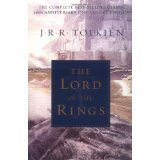 Setting, or Environment. This is the world or milieu in which the story is set. In some stories, the setting itself becomes a character, as does Middle Earth in The Lord of the Rings, or New York City in the Matthew Scudder stories of Lawrence Block. But the setting is more than simply
a) the physical setting(s).
It also includes the "social, moral, and cultural" interactions within each physical setting, which might be called
b) the "generalized significance."
The world of Left Hand of Darkeness is more than just a planet certain characteristics; Middle Earth is chock full of different cultures and mores with which the collective protagonist must contend. But the third aspect of Setting is c) the atmosphere, or emotional setting, what we might call "the mood." The Shire is not just a place; neither is Mordor or Lothlorien. Events, or Plot. The plot is a sequence of causally related events, arranged in such a way as to give the story continuity, pace, and "thematic significance" (that is, signify the theme or idea behind the story). There are two basic kinds of narratives: a) plot, properly speaking, which is a story about accomplishing (or failing to accomplish) a goal; and b) story line, which is a story in which the character of the protagonist is altered by the events of the plot. This is not the same as #2, above, which is how well realized the characters are. You may have vivid characters in a humdrum plot; or cardboard characters in a story line. For a story to really click, it should score high in all four categories. Many years ago (in a typewritten letter, that's how many years ago) I showed Nancy Kress a Story Cube I had sketched in a moment of whimsy. Because drawing a four-dimensional cube on a two-dimensional sheet is contra-indicated, I only drew three of the four. But the basic idea is simple:
Setting, or Environment. This is the world or milieu in which the story is set. In some stories, the setting itself becomes a character, as does Middle Earth in The Lord of the Rings, or New York City in the Matthew Scudder stories of Lawrence Block. But the setting is more than simply
a) the physical setting(s).
It also includes the "social, moral, and cultural" interactions within each physical setting, which might be called
b) the "generalized significance."
The world of Left Hand of Darkeness is more than just a planet certain characteristics; Middle Earth is chock full of different cultures and mores with which the collective protagonist must contend. But the third aspect of Setting is c) the atmosphere, or emotional setting, what we might call "the mood." The Shire is not just a place; neither is Mordor or Lothlorien. Events, or Plot. The plot is a sequence of causally related events, arranged in such a way as to give the story continuity, pace, and "thematic significance" (that is, signify the theme or idea behind the story). There are two basic kinds of narratives: a) plot, properly speaking, which is a story about accomplishing (or failing to accomplish) a goal; and b) story line, which is a story in which the character of the protagonist is altered by the events of the plot. This is not the same as #2, above, which is how well realized the characters are. You may have vivid characters in a humdrum plot; or cardboard characters in a story line. For a story to really click, it should score high in all four categories. Many years ago (in a typewritten letter, that's how many years ago) I showed Nancy Kress a Story Cube I had sketched in a moment of whimsy. Because drawing a four-dimensional cube on a two-dimensional sheet is contra-indicated, I only drew three of the four. But the basic idea is simple:
Imagine each dimension of the story as, well, a dimension.
X. Character Axis. Runs from stereotyped, cardboard characters up through fully realized 4-dimensional characters. A character like Nero Wolfe would fall somewhat left of the middle, as he is "characterized" essentially by a set of odd and deliberately distinctive quirks.
Y. Event/Plot Axis. I'm not sure "dull" is the right word for the low end of the axis. Perhaps "hackneyed would have been better; and "ingenious" rather than "page-turner."
Let's pause. Nancy Kress replied concerning a then best-seller that "the characters had all the depth of wallpaper, but I couldn't stop turning the pages." Considering only the Characters and the Plot, it is certainly conceivable that a story could succeed with an engrossing plot while having merely adequate characters. Similarly, a story could succeed with fascinating characters and only an adequate plot. Fans of Sci-Fi often complain about literary fiction because "nothing happens." Fans of Lit-Fi often complain about science fiction because the characters don't seem to develop. But it's really that one genre is further out one axis and the other is further out a second axis. A reader once complained to me that I spent too much time developing characters; he only wanted "the content," that is, a narrative of the plot events. Just tell me what happens, not what sort of childhood the protagonist had.
 Z. Setting Axis. At one end is the dreaded "white room," iow, a generic setting, not well described. It is a world where a dog is only a dog and not a snarling Doberman; and a chair is only a chair and not an upholstered wing-back chair. At the other end is a setting so well described that the reader thinks he is in it. It is not simply the Doberman snarling in the wing-back chair, but the generalized significance and the emotional mood of the setting. The homeowner indulges his dogs, and that is his chair, and he is warning you off. Or the dogs have all gone mad and the Doberman has eaten the homeowner and has now taken his seat. It could be a comic scene or a scene of terror. Now we are at the far-end of the Setting axis.
Z. Setting Axis. At one end is the dreaded "white room," iow, a generic setting, not well described. It is a world where a dog is only a dog and not a snarling Doberman; and a chair is only a chair and not an upholstered wing-back chair. At the other end is a setting so well described that the reader thinks he is in it. It is not simply the Doberman snarling in the wing-back chair, but the generalized significance and the emotional mood of the setting. The homeowner indulges his dogs, and that is his chair, and he is warning you off. Or the dogs have all gone mad and the Doberman has eaten the homeowner and has now taken his seat. It could be a comic scene or a scene of terror. Now we are at the far-end of the Setting axis. Idea/Theme Axis (not shown). The continuum here runs from shallow to deep, or something of that sort. Sometimes, we're only looking for light entertainment; other times for something that will grip us and make us think. As with the other axes, a story may succeed with a pedestrian or repetitive idea - Sherlock solves yet another case - provided the events that accomplish this are ingeniously arranged, and Sherlock is a convincing character.
The Pot-boiler Barrier. Down in the corner is a quarter-sphere below which we have cardboard characters in a white room pursue a humdrum plot in pursuit of a fatuous idea. These are sometimes called "best sellers." (No! Smack! Bad Flynn! Bad!) Actually, they are called The DaVinci Code. (Stop that!) But the idea that you can pursue a fascinating plot with ordinary characters goes only so far down the scale of ordinariness. There comes a point on the scale where the characters are so badly realized that no amount of plot excitement can save them. And the same goes for the other Dimensions of Story.
Your Challenge.
I divided each dimension in the Story Cube into "low" and "high" halves. This makes eight "rooms" in Story Cube Hotel. The room numbers are (character, event, setting) and are either 0 (low) or 1 (high). Don't be confused: it's like a cube plot of a 2^4 factorial experimental design. (That was supposed to clarify. The sort of mind that would create the story cube is the sort of mind who would think that would clarify diddly-squat.) Anyhow, Room 000 is where the Potboiler Barrier is; but let us allow than some books or stories in this octant would not be quite that bad. Room 010 is the room where characterization is low, plot is high, and setting is low. And so on.
Your mission, if you choose to accept it, is to suggest stories to go into various quadrants, SF or otherwise. What would you put in Room 111 (characterization is high, plot is high, and setting is high)? What were outstanding on two axes, but only so-so on another?
July 13, 2011
Award City
 Nihon SF Taikai
Nihon SF Taikai The 50th annual Japanese SF convention has announced that its annual Seiun Shō award for Foreign works, long form, has been given to Eifelheim, by yr. obt. svt., translated by Yōichi Shimada, and published by Tokyo Sogensha. Banzai!
Il Dialogo
Méarana Harper: “If the universe is infinite, I suppose it is only fitting that we be, too." -- Up Jim River
Dialogue Concerning the Internal World System
[image error]Scene: The Rialto of Venice, Salviati espies Simplicio approaching and greets him.
Salviati: What news on the Rialto, good Simpicio?
Simplicio: Well-a-day. Work progresses on our engineering of the genes. Soon we shall be the sort of people we should be. Pray tell, where is good Sagredo?
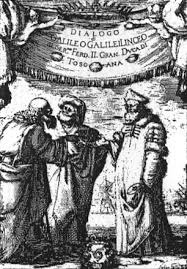 Sal.: This is a dia-logue, Who needs a third person, except to be a yes-man? Sagredo is but an edmcmahon to my johnnycarson, and in the interests of simplicity, not to mention the interests of Simplicio, I have not included him.
Sal.: This is a dia-logue, Who needs a third person, except to be a yes-man? Sagredo is but an edmcmahon to my johnnycarson, and in the interests of simplicity, not to mention the interests of Simplicio, I have not included him. Sim.: I don't get it. Why are the readers laughing?
Sal.: Why only in that they appreciate the humor sophisticated of the sort of which I have delivered myself. But tell me, my good Simplicio, what sort of people should we be?
Sim.: Well that you should inquire, good Salviati. The geneticist Jonathon Glover has written a book on genetic engineering with that very title: What Sort of People Should There Be? Verily, the code genetic is like unto a film strip, which we may unroll and examine to find the frame for any particular characteristic. Then we may make whatever changes we wish to that frame and so optimize the human genome.
The Post was too large for LiveJournal so the link takes you to the sister site The TOF Spot
July 12, 2011
Update City
The solar magnetic field strength experienced a shift in 2007, and ol' Sol just ain't had the mojo since.
Sunspots are anemic, too
 '
'At least NOAA is smart enough not to try drawing a linear trend line through cyclic data. The seem a bit optimistic because I would have faired the blue line through the last two monthly point rather than take off from the two peak points. One must discount outliers in favor of central values.
Then there is the radio flux, which mimics the sunspot count

So it seems that the next solar cycle will be a low one, and some astrophysicists are predicting that the one after this may not develop at all.
When the climate turns cold because the sun goes out, life can become hard. Growing seasons shorten. CO2 comes out of the atmosphere and thus plants grow less. If we fall into a Dalton, let alone a Maunder, we may again see those picturesque post cards of snow enshrouded Christmases. So pray for global warming, friends. Throw another log on the fire.
Michael Flynn's Blog
- Michael Flynn's profile
- 237 followers


